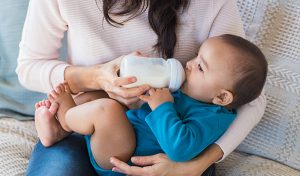Caring For Pregnant Women And Newborn During Covid-19 Pandemic!
By Dr. Nikita Toshi +2 more

Get,

to manage your symptom
Get your,


4 Cr+ families
benefitted

OTP sent to 9988776655



You’ve successfully subscribed to receive
doctor-approved tips on
Whatsapp

Get ready to feel your best.

Hi There,
Download the PharmEasy App now!!


Register to Avail the Offer
Send OTPBy continuing, you agree with our Privacy Policy and Terms and Conditions

Hi There,
Sign up on PharmEasy now!!
Trusted by 4 crore+ families

OTP sent to 9988776655



You have unlocked 25% off on medicines




Code: NU25
By Dr. Nikita Toshi +2 more
Pregnancy is a special time full of delight and expectations. But being pregnant can also be stressful. Understandably, you may be worried about the impact of coronavirus disease (COVID-19) on your as well as your baby’s health.
Table of Contents
Research is currently being undertaken to evaluate the impacts of COVID-19 infection on pregnant women. Data are limited, as per the ICMR (Indian Council for Medical Research) at present, there is no evidence of scientific literature to suggest that pregnant women are at higher risk of developing a serious illness as compared to the general population.

However, pregnancy itself alters the body’s immune system. Pregnant women can be badly affected by certain respiratory infections, including COVID-19. Hence, pregnant women must take precautions to protect themselves and inform their doctor if they develop any symptoms such as fever, cough or difficulty in breathing.
If you have or think you have COVID-19, you must isolate yourself at home. Mothers can still hold baby skin-to-skin and stay in the same room as them but should wash hands and wear a mask, especially when bonding and breastfeeding.
Dr. M.G. Kartheeka, MBBS, MD(Pediatrics)
If you are pregnant, you should take the same precautions to avoid COVID-19 infection as other people. You can help protect yourself with these steps:

Pregnant and postpartum women have a higher risk for more severe illness from COVID-19 than non pregnant women.
Dr. Ashish Bajaj, M.B.B.S., M.D. in Clinical Pharmacology and Toxicology
Emerging evidence now suggests that passage of COVID-19 from mother to baby is probable, although the proportion of pregnancies affected and the significance to the neonate has yet to be determined. At present, there are no recorded cases of breastmilk or secretions from the vagina that have been tested positive for COVID-19. There is currently no scientific evidence suggesting an increased risk of miscarriage or early pregnancy loss concerning COVID-19. (ICMR, Guidance document, dated 12 April 2020).
Stay healthy by getting a COVID-19 vaccine, following guidelines from your doctor, and keeping your prenatal and postpartum care visits, as there is an increased risk of pre-term birth.
Dr. Ashish Bajaj, M.B.B.S., M.D. in Clinical Pharmacology and Toxicology
Prenatal visits are important to ensure maternal and fetal health. However, given the current global pandemic, we are facing, many obstetricians are either increasing the interval between visits or encouraging telehealth visits.
As per ICMR guidance, pregnant women are advised to attend routine prenatal checkups at 12, 20, 28 and 36 weeks of gestation, unless they meet current self-isolation criteria. For women who have had symptoms of COVID-19, appointments can be postponed until 7 days after the start of symptoms, unless they become severe.
For women who are self-quarantined because someone in their household has possible symptoms of COVID-19, appointments should be deferred for 14 days.
If you are concerned about attending your appointment due to COVID-19, talk to your doctor. Establish a trusting relationship with your doctor and freely ask them any doubts or concerns you may have regarding your pregnancy and delivery.

An important thing to do once your baby is born is to discourage visitors. Also, ensure that all those who are caring for the baby (you and your family) frequently wash hands and wear face masks.
You can safely touch, hold and breastfeed your baby since transmission of the virus through breast milk has not been reported to date (limited scientific data available suggest this is not likely to be a source of transmission). Wear a medical mask when you are in any contact with the baby, even while feeding. Mothers should also follow other measures of preventing infections, such as washing hands, sneezing or coughing in a tissue, wiping down surfaces, etc.
In case of temporary separation of the newborn from a mother with suspected or confirmed COVID-19 (to reduce the risk of spreading the virus to the newborn) following precautions should be taken.

Pandemics can be stressful for everyone. Fear and anxiety about a disease can be overwhelming for both adults and children. Depression during and after pregnancy is common and can be treated. Postpartum depression is the depression that can happen after having a baby. If you think you may be experiencing depression, seek treatment from your doctor as soon as possible.
As the saying goes, it helps to be prepared, not scared. Simple steps like regular hand washing and avoiding crowds can go a long way in protecting you and your baby. Do not stress if your due date is coming close. Hospitals have systems in place to ensure safe deliveries and reduce the risk of infection to newborns. Stay healthy and stay protected.
Disclaimer: The information provided here is for educational/awareness purposes only and is not intended to be a substitute for medical treatment by a healthcare professional and should not be relied upon to diagnose or treat any medical condition. The reader should consult a registered medical practitioner to determine the appropriateness of the information and before consuming any medication. PharmEasy does not provide any guarantee or warranty (express or implied) regarding the accuracy, adequacy, completeness, legality, reliability or usefulness of the information; and disclaims any liability arising thereof.
Links and product recommendations in the information provided here are advertisements of third-party products available on the website. PharmEasy does not make any representation on the accuracy or suitability of such products/services. Advertisements do not influence the editorial decisions or content. The information in this blog is subject to change without notice. The authors and administrators reserve the right to modify, add, or remove content without notification. It is your responsibility to review this disclaimer regularly for any changes.

Leave your comment...
Comments